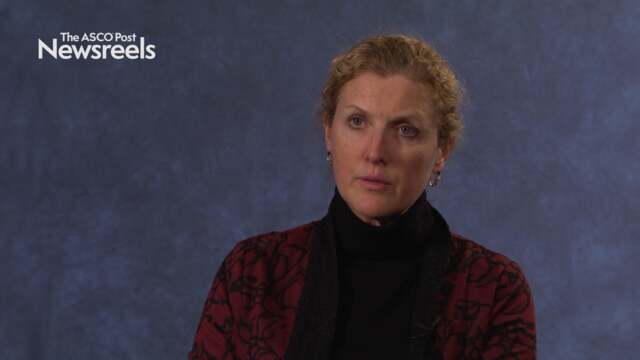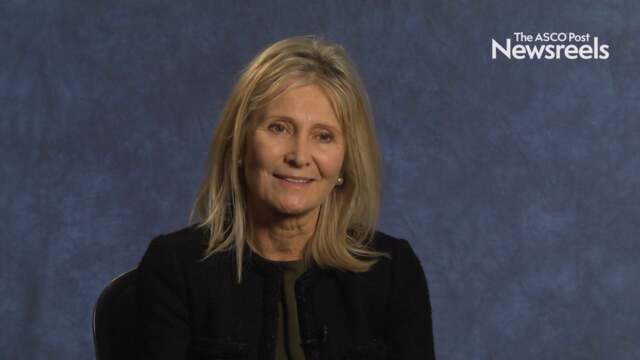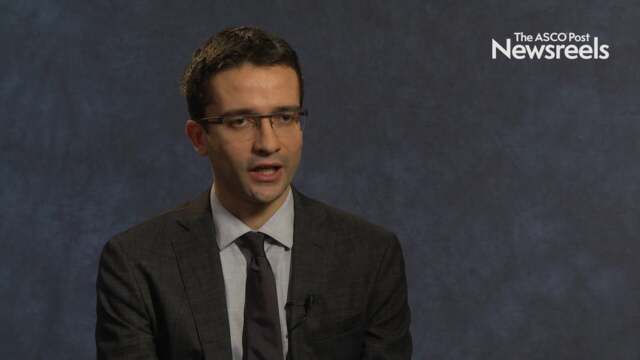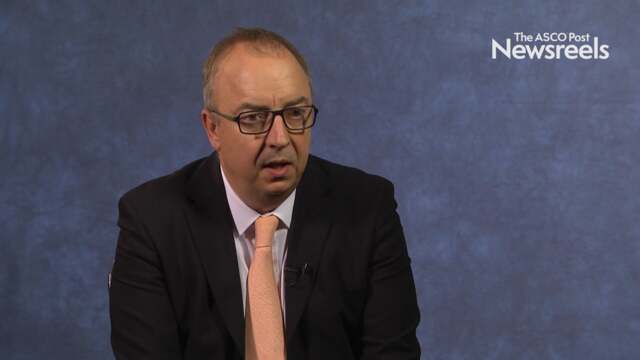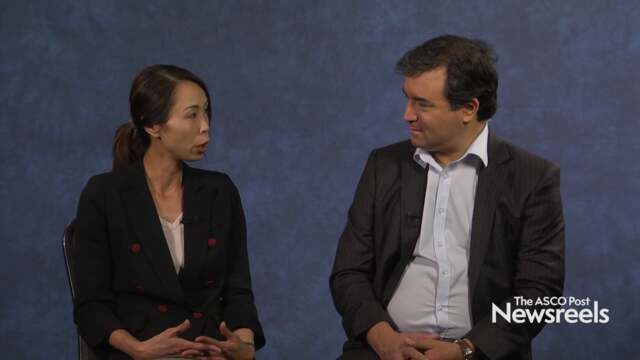Wolfgang Janni, MD, PhD, on Early Breast Cancer and Bisphosphonate Treatment: Results From the SUCCESS A Trial
2017 San Antonio Breast Cancer Symposium
Wolfgang Janni, MD, PhD, of Ulm University, discusses study findings that showed extended adjuvant bisphosphonate treatment over 5 years in early breast cancer does not improve disease-free and overall survival when compared with 2 years of treatment (Abstract GS1-06).
Lisa A. Carey, MD, of the University of North Carolina, discusses the long-term follow-up of CALGB 40502/NCCTG N063H, a phase III study of weekly paclitaxel compared with weekly nanoparticle albumin bound nab-paclitaxel or ixabepilone with or without bevacizumab as first-line therapy for locally recurrent or metastatic breast cancer (Abstract GS3-06).
Silvia C. Formenti, MD, of Weill Cornell Medicine, discusses the high therapeutic potential of combining radiotherapy with immunotherapy and findings that show radiation dose and fractionation seem particularly relevant to the success of abscopal responses. The science has now matured to clinical translation.
Matteo Lambertini, MD, of the Institut Jules Bordet, discusses the results of five clinical trials investigating temporary ovarian suppression with gonadotropin-releasing hormone analogs during chemotherapy as a strategy to preserve ovarian function and fertility in premenopausal early breast cancer patients (Abstract GS4-01).
Michael Gnant, MD, of the Medical University of Vienna, discusses phase III study findings on giving an additional 2 vs an additional 5 years of anastrozole after the first 5 years of adjuvant endocrine therapy (Abstract GS3-01).
Sherene Loi, MD, PhD, and Roberto Salgado, MD, PhD, both of the Peter MacCallum Cancer Centre, discuss study findings on pembrolizumab and trastuzumab in patients with trastuzumab-resistant disease (Abstract GS2-06).
